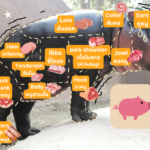ติดโพย (PopThai)
Move your mouse over the text to see pop-up windows.
|
About our ads

We know you don’t love ads. But we need ads to keep Longdo Dictionary FREE for users. Thanks for your understanding! Click here to find out more.





